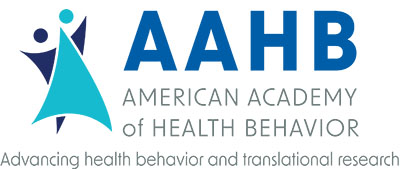2025 Scientific MeetingImplementation science - how can it help us get to the next level? General concepts, opportunities, and relevant resourcesLearning objectives:
Speaker Profiles |
Community Engaged Panel
Speaker Profiles
 Nicole Howard, PhD
Nicole Howard, PhD
Executive Vice President
Health Quality Partners of Southern California
Email: nhoward@hqpsocal.org
Website: hqpsocal.org
Nicole Howard is the Executive Vice President of Health Quality Partners of Southern California (HQP) and Chief Advancement Officer of Health Center Partners of Southern California (HCP). She has been employed by the Health Center Partners Family of Companies since 2007. Nicole has over 30 years of experience in the healthcare industry. She has experience developing, implementing, and evaluating programs. She has secured funding for and managed collaborative state, federal, county, and private foundation-funded grants and research programs. Her focus areas have been cancer screening (colorectal, breast cancer), oral health, behavioral health, enrollment, and quality management programs. She has a wealth of experience working with leadership from Federally Qualified Health Centers (FQHCs, tribal programs, and Planned Parenthood of the Pacific Southwest) on a variety of topics and facilitates the HCP Chief Medical Officers Leadership Network, consisting of CMOs representing 17 community health center organizations.
 Linda Salgin, MPH
Linda Salgin, MPH
Senior Program Manager
San Ysidro Health
linda.salgin@syhealth.org
Mrs. Linda Salgin received her Master of Public Health with an emphasis in Health Promotion and Behavioral Sciences from San Diego State University (SDSU) and earned the Certified in Public Health credential in 2015. Since then, she has worked with San Ysidro Health, the second largest Federally Qualified Health Center (FQHC) in San Diego, developing, implementing, and evaluating various research and service-oriented programs. Over the past decade, Mrs. Salgin has dedicated her career to working closely with underrepresented communities, providing essential resources to improve health outcomes and address health disparities.
In her current role as Senior Program Manager within the Research & Health Promotion Department, she oversees several significant projects including the NIH-funded All of Us Research Program which aims to advance precision medicine; an NIH-funded proposal under the Rapid Acceleration of Diagnostics for Underserved Populations (RADx-UP) initiative to expand equitable access to COVID-19 testing resources; and a CDC-funded project focused on respiratory epidemiology and surveillance within the southern San Diego community.
Mrs. Salgin is also a doctoral candidate in the Joint Doctoral Program in Public Health at San Diego State University and the University of California, San Diego, with a specific emphasis on Health Behavior. Her doctoral research uses a combination of quantitative, qualitative, and implementation science methodologies to evaluate disparities in receipt of tobacco cessation counseling among underserved communities and to elucidate multilevel determinants for the equitable implementation of tobacco cessation services. As an emerging implementation scientist, her long-term goal is to bridge the gap between academic research and real-world applications, particularly in the context of FQHCs, to ensure the success and sustainability of interventions.
 Paul Watson, PhD
Paul Watson, PhD
President/CEO
Global Action Research Center
Paul Watson is the President/CEO of the Global Action Research Center, a social change organization that provides training, technical support, facilitation, and serves as an intermediary between universities and underserved communities. Paul has over 35 years of experience in non-profit administration, management, and delivery of human services by non-profit organizations. He is an experienced administrator, trainer, and facilitator. Internationally, Paul produced a youth development strategy for two countries in Central Asia (Kazakhstan and Kyrgyzstan) and in Jamaica. In the Netherlands, he provided training in community development, micro-enterprise, and strategic planning methods for participants to use in their local communities and has conducted a Community Youth Development training in Egypt. In South Africa, Paul organized and facilitated community forums that were designed to bring police and youth together to create and implement strategies to reduce crime in their neighborhoods. Paul currently serves as a Co-Principal Investigator on several research studies at UC San Diego, UCLA, and UC San Francisco.


 Steven A. John, PhD, MPH
Steven A. John, PhD, MPH Nathalie Moise, MD, MS
Nathalie Moise, MD, MS Borsika Rabin, PhD, MPH, PharmD
Borsika Rabin, PhD, MPH, PharmD Rachel Shelton, ScD, MPH
Rachel Shelton, ScD, MPH Stephanie Staras, Ph.D.
Stephanie Staras, Ph.D. Cheryl Vamos, PhD.
Cheryl Vamos, PhD. Theresa L Walunas, PhD
Theresa L Walunas, PhD Nicole Werner, PhD
Nicole Werner, PhD